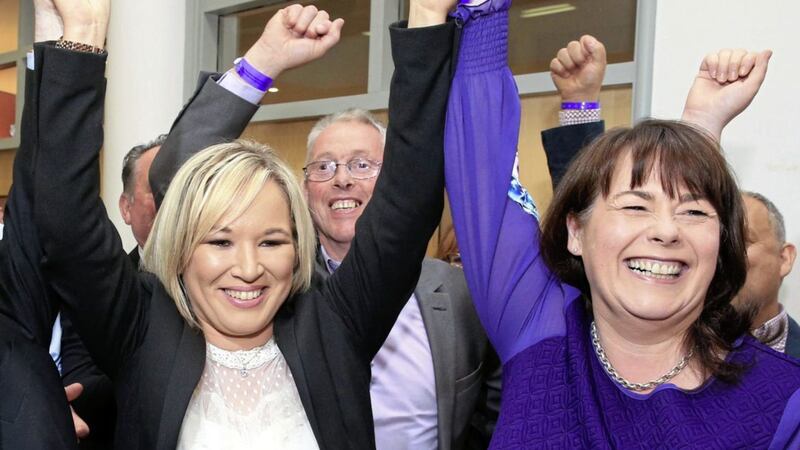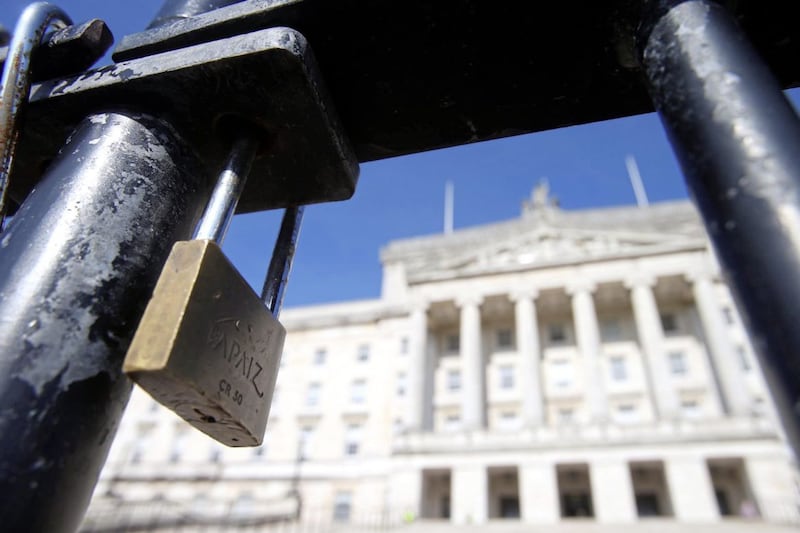As he settles into the job, Taoiseach Leo Varadkar will keep a close eye on developments in the north but the key day-to-day role on behalf of the Irish government will be carried out by the new minister for foreign affairs, Simon Coveney.
The Cork man lost out to Varadkar in the fight to become leader of Fine Gael and therefore head of government, but he is very popular with the grassroots membership of the party and could still secure the top job at some future stage.
Coveney is a very capable and respected politician with substantial experience as a member of the European Parliament and later as minister for agriculture, defence and most recently housing. Although outmanoeuvred in the leadership race, his political skills should not be underestimated and he will be a formidable presence in the efforts to restore the power-sharing executive.
The minister will have an additional responsibility as co-ordinator of the government's overall response to Brexit, so as to ensure that Ireland's interests are fully taken into consideration. Keeping our north-south border as soft as possible will be perhaps his biggest challenge.
The leadership contest allowed Fine Gael to hog the political and media spotlight in recent weeks, but now that the new regime is in place, Fianna Fáil, Sinn Féin and others in the opposition can expect to receive greater attention.
Sinn Féin must be fed up with the term "confidence and supply" at this stage. That was the formula whereby Fine Gael was enabled to remain in power down south with the consent of FiannaFáil on the opposition benches. Now we are hearing about it in the context of an arrangement between Theresa May and the Democratic Unionist Party.
At Leinster House, Sinn Féin at least has the consolation of actually being present in the chamber where the votes are taken. Once again, the policy of abstentionism towards the House of Commons is a focus of attention, debate and speculation.
What if there was a tight Westminster vote and Sinn Féin's seven MPs were the key to bringing down a Tory government and installing a Labour prime minister with a long record of sympathy for Irish republicanism? Suppose that Labour Party leader promised to abolish the oath to the Queen, immediately on taking office? It's not an unduly fanciful scenario: a marriage of convenience between the Conservatives and the DUP could fall apart or a few Tory MPs might break ranks or be unavailable for health reasons.
The traditional republican argument is that it is a matter for the `Brits' who need to abolish the oath of allegiance to the crown and replace it with a pledge of office similar to the one at Stormont which does not mention the Queen.
When you read the actual wording of the British oath it is easy to see how Irish republicans would balk at its terms: "I, (name of Member), swear by Almighty God that I will be faithful and bear true allegiance to Her Majesty Queen Elizabeth, her heirs and successors, according to law. So help me God."
There is also a secular wording and a rather different version is attributed to the legendary Dennis Skinner, when he took the oath: “I solemnly swear that I will bear true and faithful allegiance to the Queen when she pays her income tax.” (We are told she makes private payments on a voluntary basis.)
Time was when a somewhat-similar oath was required for entry to Dáil Éireann. With great and even theatrical reluctance, Eamon de Valera signed it and, some years later, got rid of the requirement.
Despite the friendly encounters between the late Martin McGuinness and the British monarch and the handshakes between Gerry Adams and Prince Charles, a softening of the Sinn Féin position can be ruled out under present conditions. De Valera only changed his line because of the massive crisis that erupted following the assassination of Free State justice minister Kevin O'Higgins in 1927. Otherwise Dev and his party would have been banished to the political wilderness.
The defeat of the SDLP's three MPs means there is nobody in the chamber at Westminster to represent the views of nationalists in the north to a government which, for good or ill, ultimately still runs the place.
There is no sign of any Sinn Féin change of heart although political developments could yet force them to explain exactly what they might have against putting the Tories out of office. That situation might never come about but then who would have foreseen that Arlene Foster and the DUP would end up as power-brokers in present circumstances? As we make our way into an uncertain future, the only safe motto is: "Prepare to be surprised."








